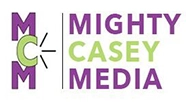It’s been a fun week here in Mighty Casey Media Land. We kicked off the week a little early (on Sunday) – the 411 on that is available here, and some of the social exhaust is available on Storify here and here. One member of the e-patient posse worried that the guy was gon’ have to enter witness protection, given the avalanche of opprobrium aimed his way from the expert-patient community.
Thank god. I was worried this guy might need to go into the witness protection program. TY @MightyCasey – #FTW! https://t.co/xIayus5Gao
— Hurt Blogger | Britt (@HurtBlogger) June 17, 2015
In an email thread among a group of expert patients working on aggregating and curating patient-useable outcomes reporting tools, Dr. Corrie Painter said she had called the Brookings Institution, the think tank where the author of the US News piece that set my hair on fire does his think-tank thing, and left a terse message on the Governance Studies main line about pontificating patriarchal putzes (technical term).
Given my willingness to talk to anyone, any time, if it moves the needle on healthcare system transformation, I went one better and called the *other* number on the guy’s bio page. I expected to wind up leaving a voicemail, but …
He. Answered. The. Phone.
We talked for about 30 minutes, during which I assured him that I did *not* think that Yelp reviews were the ne plus ultra, or even a thing, when it came to outcome metrics on physicians and other clinical providers of medical services. But, as I pointed out in my “I’m channeling Lewis Black, with boobs, in healthcare here: righteous rage + cutting humor = driving that point home!” post, what real metrics are *available* to patients seeking intel on the expertise and outcomes of the doctors they go to for care?
There are PQRS and Physician Compare data sets, but they’re pretty small beer. Physician Compare serves up Medicare data – just *try* to find intel on a pediatrician, or an obstetrician, in that reporting tool.
In a follow-up post of his own, Yaraghi clarified his position on online review sites like Yelp *not* being the right place for medical provider ratings based on medical training, outcomes, or efficacy of care. His closing graf is the money shot for me:
Patients’ involvement in their medical care is the best thing that could happen to our severely sick health care system. Patients should have access to reliable and valid data to help them decide about their medical provider. They should have the capacity to shop around and visit multiple providers. Healthcare is the most important service we obtain in our life and being able to choose who provides it, in my opinion, is a fundamental patient right. Currently available online patient reviews however, are not the correct measure to rely on when making such a decision.
Net/net here: Niam Yaraghi is a guy with an open mind on the idea of patient expertise. In the days and weeks to come, I hope that the e-patient community turns out in force to engage him in conversation, and to make their case for both patient expertise and the deep need for effective, accessible physician scoring – on number of procedures, on patient satisfaction, on recurrence rates, on all stats relating to the efficacy and humanity of their care – that people can use to find the best doctor for their healthcare needs.




